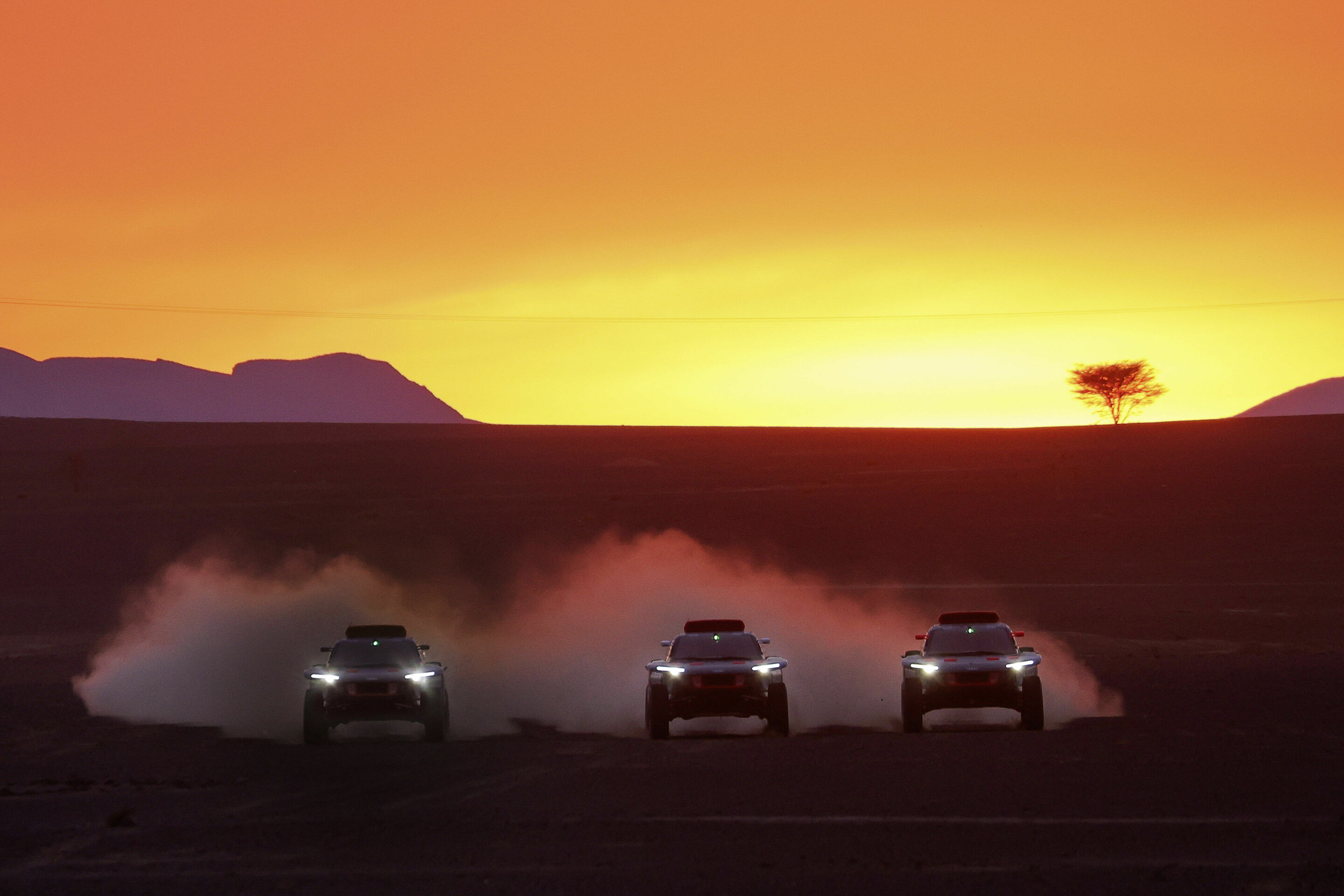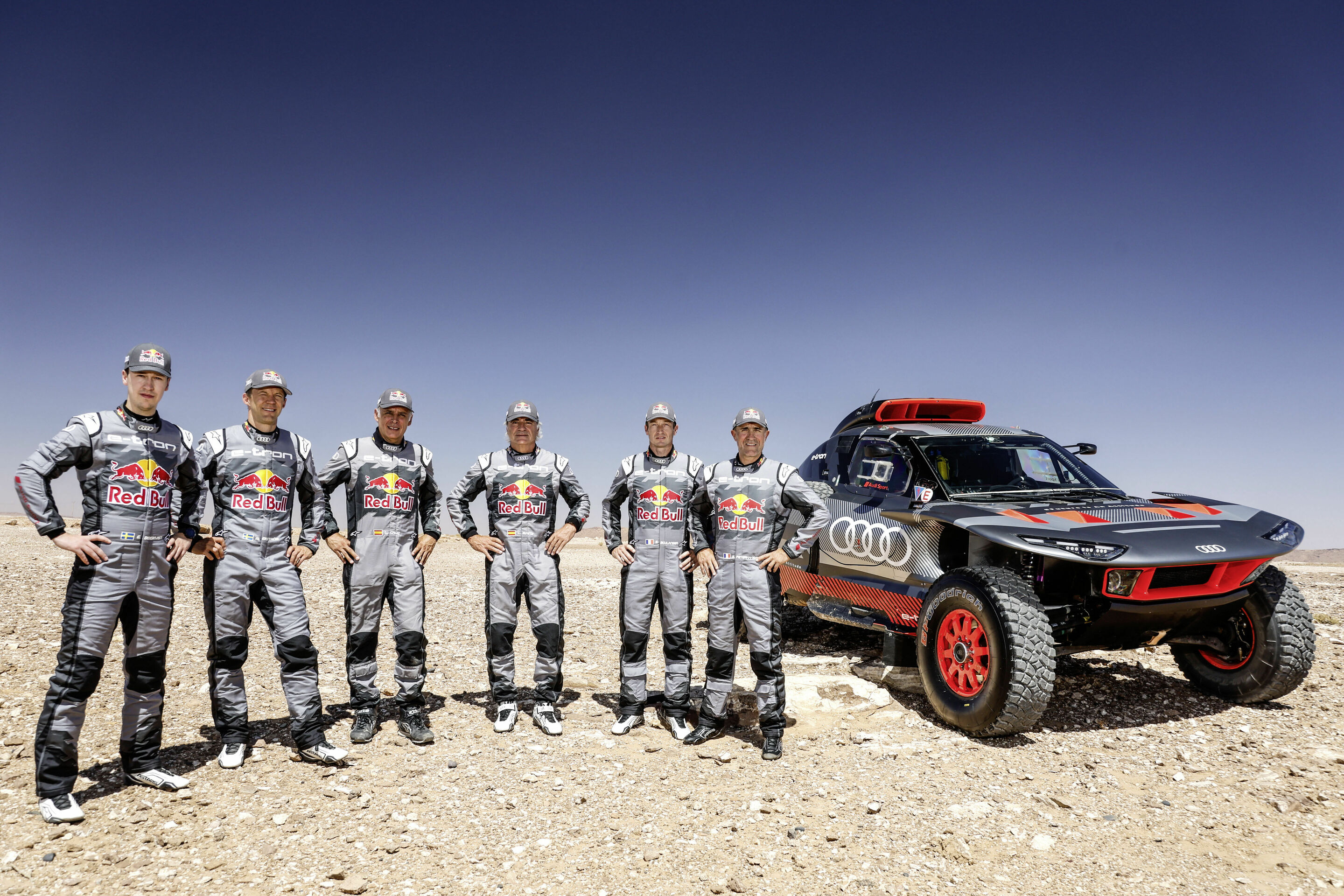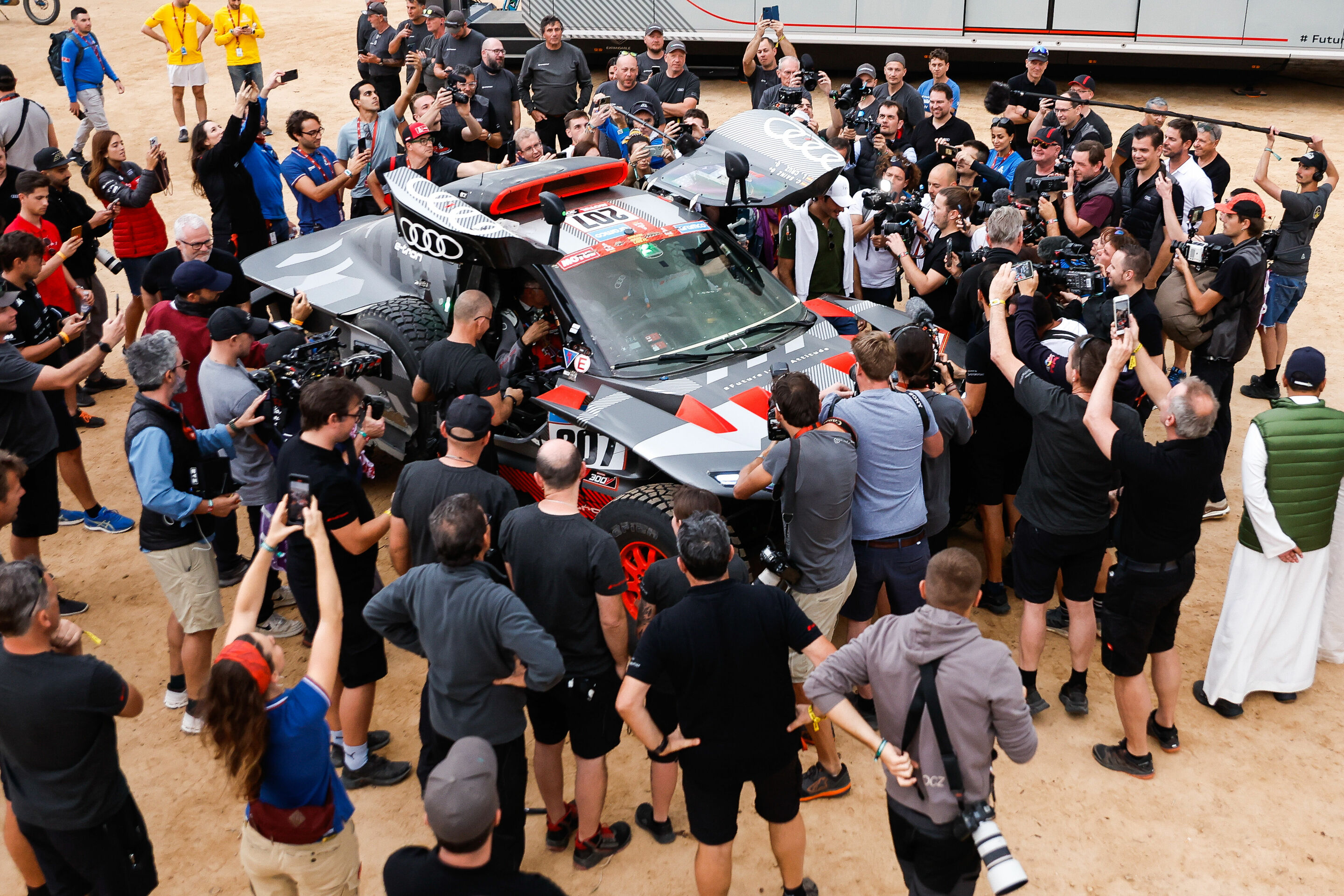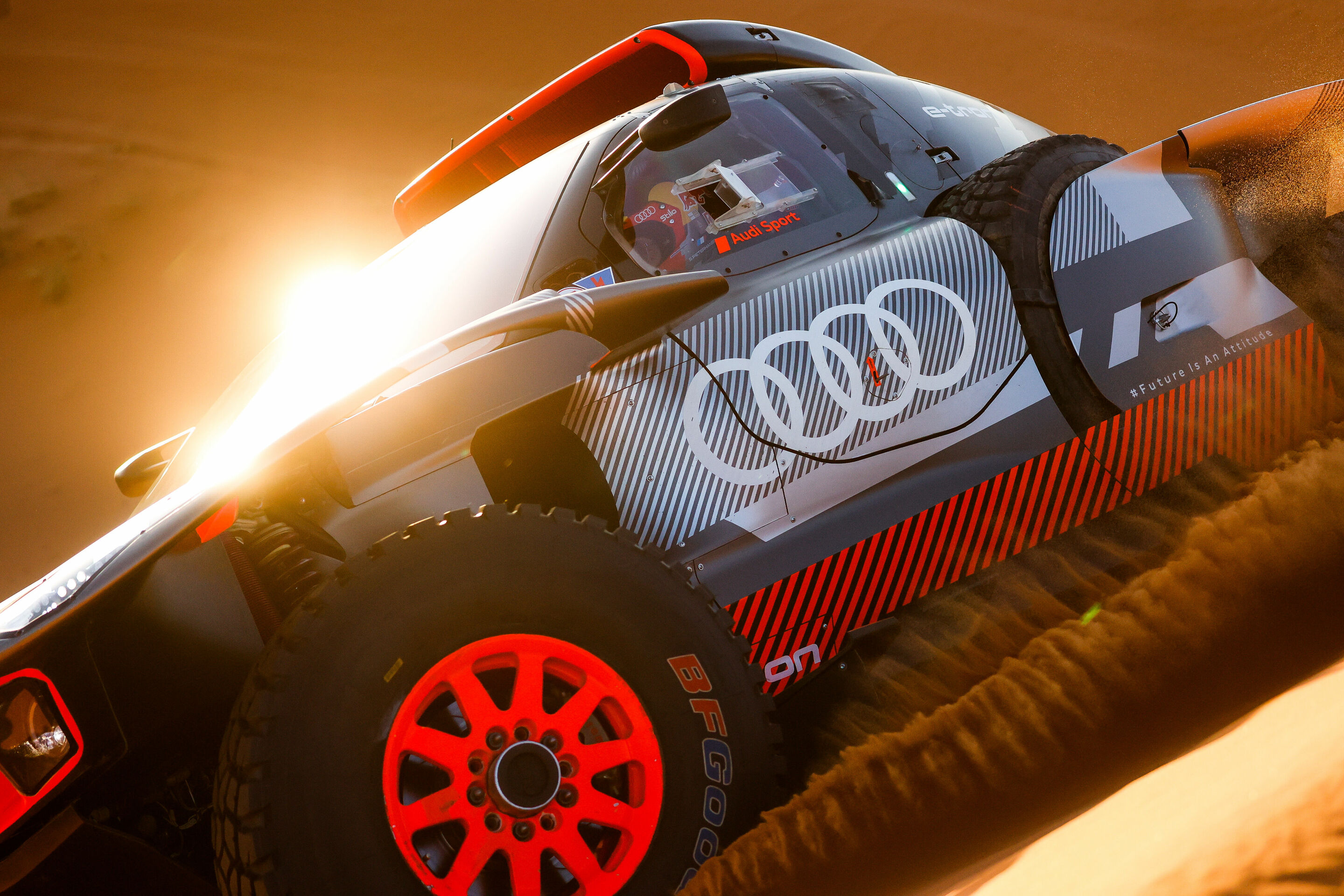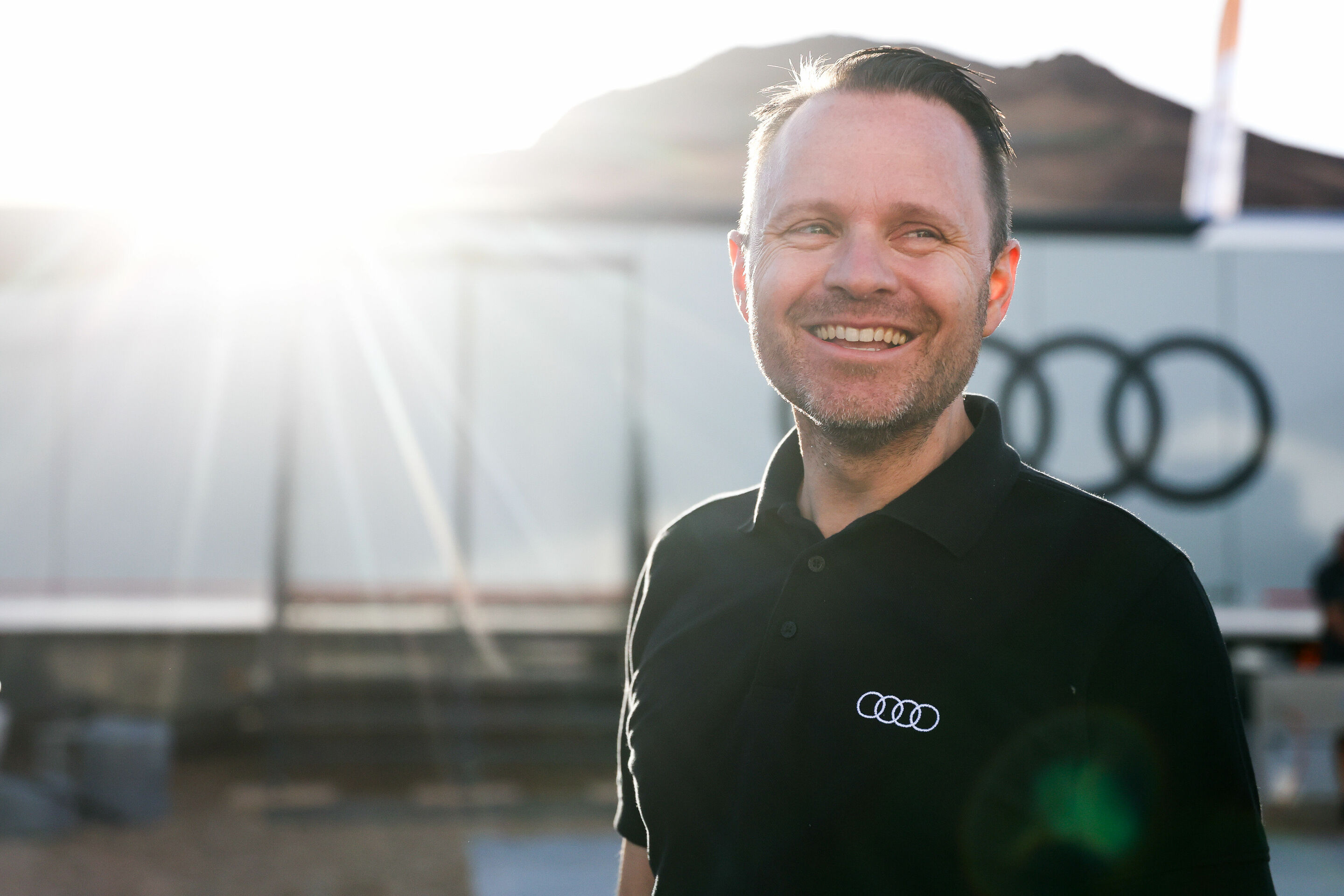The Dakar project: Rallying, circuit racing, desert rallying
Back to overviewAudi Sport has its roots in rallying. In the early 1980s, the Audi quattro brought about a paradigm shift in rallying with its all-wheel drive. Since then, four-wheel drive has been a standard for winners in this competition. The quattro models also won the hearts of fans on the circuit and many trophies, which can still be admired today at Audi Sport.
Work on the RS Q e-tron began with a feasibility study carried out by a small core team for the alternative drive concept. The design and concept phase began in June 2020. The design work began in August.
Audi Sport benefited from its wealth of knowledge from around four decades of motorsport. Whether rally models, near-production or fundamentally different touring car concepts, LMP sports prototypes or racing cars for Formula E and Rallycross: the versatile knowledge of all vehicle areas was also consistently incorporated into the development of the Audi RS Q e-tron.
Reliability, safety and performance are important goals for Audi Sport in order to survive the Dakar Rally. Whether sand, rubble, rough gravel roads, but also mud, rain and extreme heat: the technology has to work in all conditions. This variety is particularly demanding for an electric drive. What’s more: In contrast to the circuit, the daily changing requirements in terms of distance and energy consumption are unpredictable, as the route remains a secret for all participants until the morning of each stage.
All relevant departments at Audi Sport were involved in the development of the Audi RS Q e-tron. They practically started from scratch with the RS Q e-tron and defined all the parameters on a blank sheet of paper. With Q Motorsport, the brand had a strong partner at its side right from the start. The team from Trebur has several decades of experience and many successes from cross-country rallying. To this day, the partnership is characterized by close and trusting cooperation.
